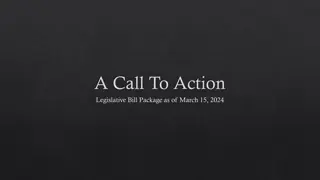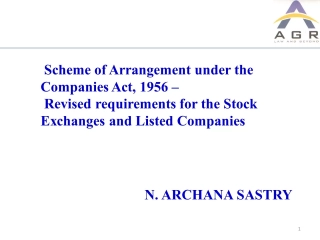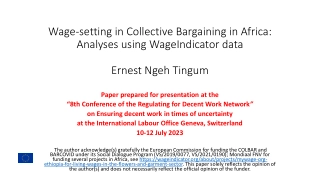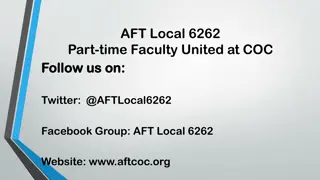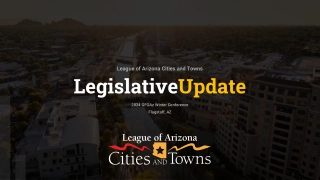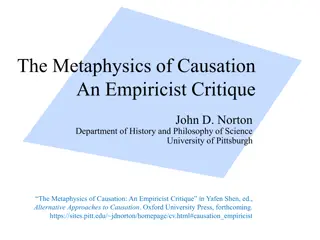Challenges and Negotiations Surrounding Companies Amendment Bills
The Select Committee on Trade and Industry addressed issues such as outdated legislation affecting South Africa's business environment. Negotiations at Nedlac resulted in compromises between business and labor interests. Criticisms were raised regarding corporate transparency, executive pay discrepancies, and the balance between shareholder and stakeholder interests.
Download Presentation
Please find below an Image/Link to download the presentation.
The content on the website is provided AS IS for your information and personal use only. It may not be sold, licensed, or shared on other websites without obtaining consent from the author. Download presentation by click this link. If you encounter any issues during the download, it is possible that the publisher has removed the file from their server.
Presentation Transcript
Companies Amendment & Second Amendment Bills Select Committee: Trade and Industry, Economic Development, Small Business, Tourism, Employment and Labour 20 February 2024 1
Problems to address SA grey listed last year because of outdated legislation, incl Companies Act Painful consequence for attracting investment & creating jobs Act not in line with international practices Huge, unsustainable pay discrepancies between highest and lowest paid, contributing to inequality Very little accountability for obscenely paid executives & pay often not linked to company performance Act not contributing to labour market stability 2
Nedlac negotiations background General agreement after tough negotiations with BUSA Out of all the clauses, only two areas of disagreement Clauses amended following Business inputs & concerns CAB not always Labour s first choice but outcome of social dialogue & compromise 3
Scare tactics by some in Business Adds administrative burdens Diminish SA s attractiveness as an investment destination Scare away potential CEO / directors Reveal private information Not in compliance with the POPI Act Cause chaos between directors and shareholders 4
Criticism not credible Legal framework in CAB already employed in other countries Current lax corporate regime creates space for businesses to capture the state and be corrupt Companies info is not automatically private & privacy legislation creates space for sharing Customers, suppliers & communities need to know who the companies are they interact with International investors weary of SA because of lack of transparency & risks posed by our inequality Our inequality needs important interventions such as those contained in CAB SA CEO salaries often out of touch with reality and shareholder expectations 5
Shareholder interest vs stakeholder interest Prof Michael Katz, chair of ENSafrica & specialist in corporate and commercial law, Daily Maverick, 7 January 2021: There is wide recognition by experts in corporate governance, including academics and senior business leaders, that the duties of directors are not confined to advancing the interest of shareholders; there are other stakeholders whose interests are also relevant and require recognition. These include employees, customers, suppliers, the local community and the environment, among others. So CAB cannot be measured against archaic 1970s and 1980s views on corporate governance, which regard shareholders as the only stakeholder of interest 6
Remuneration report provisions CAB will allow shareholders to reign in excessive executive pay & provide more information on pay gaps Greater transparency and the publication of the pay gap are in line with the King IV Report on Corporate Governance for South Africa (King IV): The remuneration of executive management should be fair and responsible in the context of overall employee remuneration. It should be disclosed how this has been addressed. This acknowledges the need to address the gap between the remuneration of executives and those at the lower end of the pay scale Business Day Deputy Editor, Tiisetso Motsoeneng, Sept 2023 op-ed: The CAB would require public and state-owned firms to disclose their pay ratios and seek shareholder approval for their remuneration policies. The move is not only justified but also necessary The OECD principles of corporate governance, the global standard for corporate governance, recommends that executive pay should be transparent, aligned with long-term value creation, and subject to shareholder oversight. 7
Section 30A CAB will provide more info about wage inequality & excessive executive pay; aligned with King IV & global developments Cliffe Dekker, in a note Corporate & Commercial Alert , 6 Oct 2021: On balance, the proposed inclusion of the majority of section 30A is a positive development for corporate governance that would align South African company law more closely with international best practice . Mandatory pay gap disclosure: US, UK, Netherlands Already some companies publishing gap / lowest paid: Absa, Investec, JSE, Nedbank, Old Mutual, Shoprite, Standard Bank 8
Section 30A Support sections 30A(4), (6), (9) to make shareholders vote binding Existing remuneration system is broken executive salaries are unjustifiably high & out of sync with country shareholders cannot hold directors responsible drives inequality widespread discontent among shareholders, workers & public with executive salaries current advisory vote regime serves no purpose In line with Australian system 9
Business Day Deputy Editor op-ed, Sept 2023 The bill comes in the context of shareholder and broader society rebellion against companies that reward their leadership teams even when share prices are falling and wages for the rank-and-file worker are not rising at the same margin. Furthermore, the draft regulations do not impose arbitrary or rigid limits on executive pay but rather empower shareholders to have a stronger say on the remuneration policies of their companies [T]he bill gives shareholders a stronger say to reject the remuneration policy and report and discipline the board for excessive or unjustified pay in two ways Crucially, the nonexecutive directors who are responsible for deciding the pay policy cannot serve on that committee for three years after the rejection, creating a strong incentive for them to challenge a remuneration report that is not fair and reasonable in the overall context of employee salaries. These are progressive changes that, in all likelihood, would be welcomed by shareholders. The bill thus enables shareholders to use their rights to make directors and executives accountable for their pay choices while nudging companies towards fair and sensible pay policies that match long-term value creation, shareholder interests and social norms. 10
Labour position Special resolution Once JSE rules Two-strike Australia Special resolution Twice CAB Vote Special resolution Once Ordinary resolution Once Number of votes Binding Outcomes Yes Remco resign as directors No Consult dissenters Yes Board stand for re- election Yes Remco not eligible for Remco 11
Proposed amendment Proposed amendment: s30A(1) S30A only applies to listed companies and SOCs (see s30A(1)) BLSA & PSG CEO suggested it apply to privately owned ones also Support this call; many unlisted companies are bigger than listed companies & have similar pay gaps Our amendment suggests a threshold so not burden small businesses 12
Access & transparency provisions Support s25 & s26: will improve, deepen & broaden access to company info In line with global practices CAB will help to provide oversight by customers, suppliers, workers, the media, state, communities & public allow these parties to shield themselves from risk and wrongdoing is crucial in saving jobs, determining fairness in pay & uncovering fraud can assist the media to reveal conflicts of interest, corrupt practices 13
Criticisms not credible CAB s enhanced transparency and access provisions are based on the recognition that corporate activity has wide social impact Recognised by Constitutional Court in Bernstein and Others v Bester and Others, 1996: The establishment of a company as a vehicle for conducting business on the basis of limited liability is not a private matter. It draws on a legal framework endorsed by the community and operates through the mobilisation of funds belonging to members of that community. Any person engaging in these activities should expect that the benefits inherent in this creature of statute will have concomitant responsibilities. These include, amongst others, the statutory obligations of a proper disclosure and accountability to shareholders. POPI Act does not inhibit the sharing of info but regulates how S37 and s38 POPIA list grounds on which the processing of personal information is not a breach of the Act 14
Sections 26 & 33 S26 & 33 of Act provides for access to company information, through the direct access method but several hurdles and inadequate We believe workers, unions and others should have access to more info than currently in CAB, including meeting minutes, reports to annual meetings, etc At Nedlac, resistance from Business saw types of documents accessible being reduced; we respect that agreement So we support s26 & 33 of the CAB 15
Proposed amendment Proposed amendment: s25(2) S26 & 33 allows for direct access to more info and companies filing more info with CIPC; but s25(2) on how it will be handled, unclear A company must file a notice, which the Commission must publish as prescribed, setting out the location or locations at which any particular records referred to in section 24 are kept or from which they are accessible if those records Amend to be explicit which the Commission must publish on the website of the Commission 16
Beneficial ownership technical issue Beneficial ownership provisions amended with GLAA in 2022 but conflicting definitions in s1 and 56 between beneficial interest & beneficial owner Concerned not in line with FATF which may prolong greylisting & undermine jobs & investment Proposals: Replace all beneficial interest to beneficial ownership (as per s1) Streamline provisions obligating companies to ascertain who their beneficial owners are and obligating reporting 17
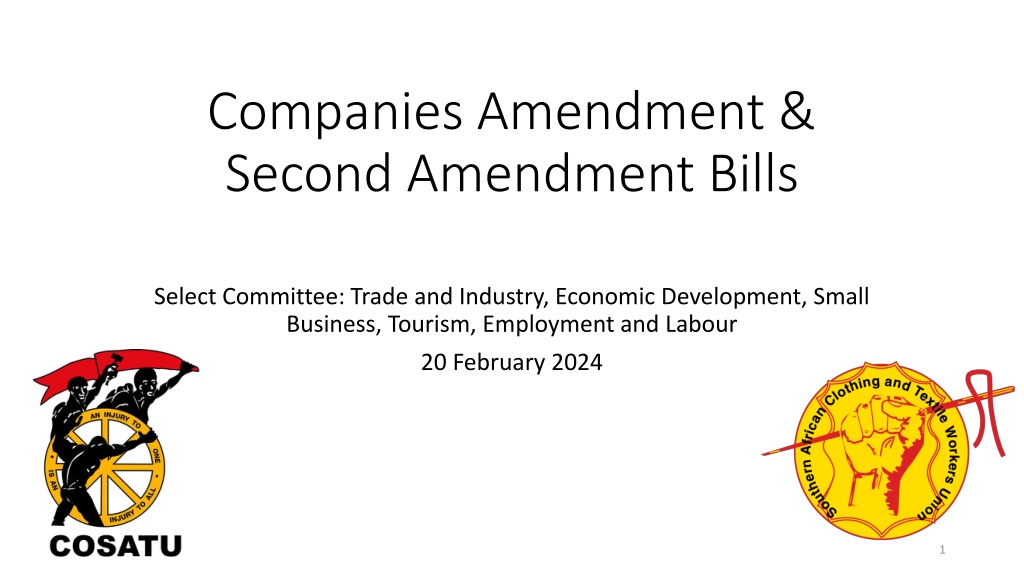

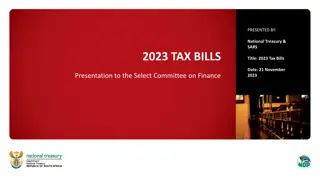
![Enhancing Corporate Transparency: Analysing The Companies Amendment Bill [B27B-2023]](/thumb/60028/enhancing-corporate-transparency-analysing-the-companies-amendment-bill-b27b-2023.jpg)
![RE: ELECTORAL MATTERS AMENDMENT BILL [ B42-2023]](/thumb/18837/re-electoral-matters-amendment-bill-b42-2023.jpg)
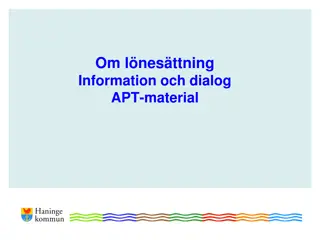
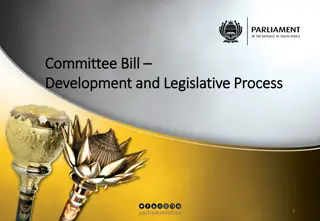
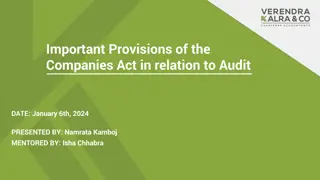
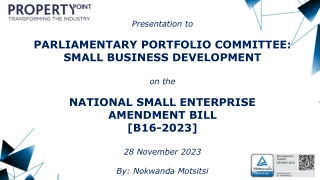


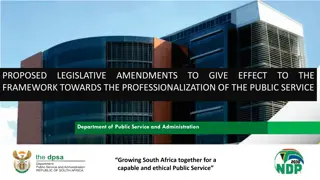
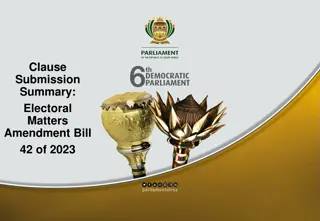
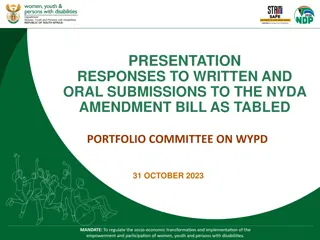
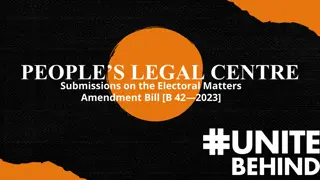
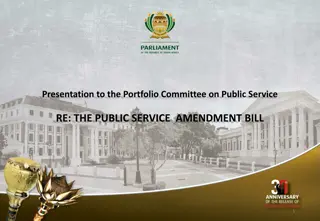



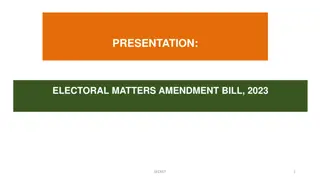
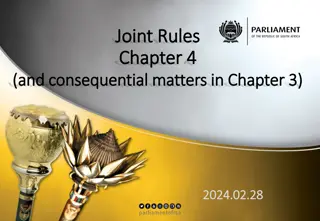

![Town of [Town Name] Real Estate Tax Rates and FY 2024 Budget Summary](/thumb/62211/town-of-town-name-real-estate-tax-rates-and-fy-2024-budget-summary.jpg)

